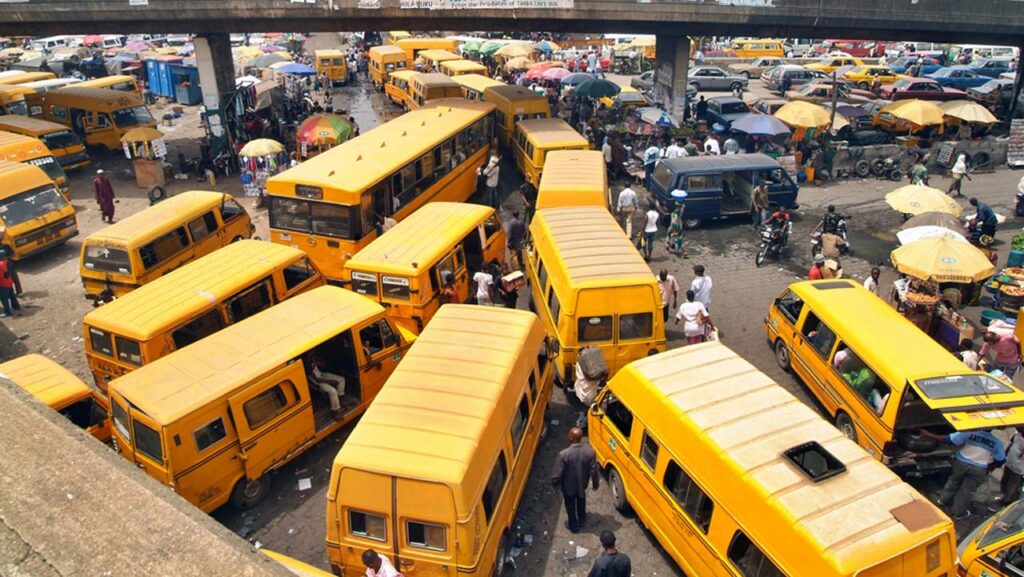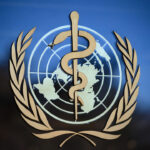
… Only 14 radiotherapy units for over 200m population, out of which eight are unsafe
… IAEA recommends four radiotherapy units per million people
…. Cancer is second leading cause of death globally
Citing cancer as the second leading cause of death globally, the World Health Organisation (WHO) has stated that an estimated 19.9 million new cases of cancer and almost 10 million deaths from cancer are recorded yearly.
Indeed, the body warned that the cancer burden will increase by approximately 60 per cent over the next two decades, further straining health systems, people, and communities.
The predicted global burden will increase to about 30 million new cancer cases by 2045, with the greatest increases occurring in low- and middle-income countries.
In Nigeria, the prevalence of cancer in Nigeria is rising at an alarming rate, posing a significant threat to the health and well-being of Nigerians.
According to the federal government, over 124,000 cases of cancer were recorded in the country in 2020 and this resulted in 78,899 deaths. The situation is compounded by the dearth of specialists and necessary equipment required for proper treatment and management of the disease.
According to the Association of Clinical and Radiation Oncologists of Nigeria (ARCON), Nigeria has less than 100 oncologists providing cancer treatment to over 200 million people.
Based on the International Atomic Energy Agency (IAEA) standards, countries are supposed to have one oncologist per 100,000 population but in Nigeria, less than 100 oncologists are providing treatment for a population of over 200 million instead of at least 2500 oncologists.
ARCON also decried the shortage of radiotherapy machines in the country, stressing that less than 20 radiotherapy machines are functional in the entire country.
The International Atomic Energy Agency (IAEA) ideally recommends four radiotherapy units per million people; hence, Nigeria needs over 200 radiotherapy machines.
The South-south region of the country, with an estimated population of about 26 million people has no single radiotherapy unit despite the existence of a cancer and cardiovascular hospital built by one of the former governors in the region.
Painting what seems like a gloomy picture of the cancer care situation in Nigeria, the Director General of the Nigerian Nuclear Regulatory Authority (NNRA) Ya’u Usman Idris, said that Nigeria has only 14 radiotherapy machines in the country out of which Eight are not safe.
According to him, only six out of the 14 radiotherapy units in Nigeria are licensed by the NNRA, which is the regulatory authority. At the World Cancer Day Symposium organized by Project Pink Blue in Abuja, the NNRA boss lamented that even some of the radiotherapy units, which are licensed by the authority, are not functional.
He said: “We have a serious problem; there’s nothing to celebrate today but to lament. Looking at the case of Nigeria, we have only 14 radiotherapy machines in the country and nine of them belong to the government, five of them belong to private institutions and only six of them are licensed by the Nigeria Nuclear Regulatory Authority which means, the others are not safe. In terms of equipment, Nigeria has only seven Linacs (Linear accelerators), for a population of 200 million people.
“South Africa has 92, Egypt has 76, if you compare those two countries with Nigeria, even the ones we have are not functioning, because today they are functioning, tomorrow they are down. If you go to the Nuclear Medicine, we have only two Nuclear Medicine centres that have gamma cameras and both are down at the National Hospital, Abuja and University College Hospital, Ibadan.”
According to him, ‘Virtually there’s no gamma camera that is working in Nigeria whereas a country like Tunisia with a population of twenty-something million has about 14 of them working.
“We have only one Positron Emission Tomography Computed Tomography (PET-CT) and it’s private. Nigeria doesn’t have the money to procure even one, but a private hospital did.
“It is our duty to check the state and status of the equipment, the operations, the services rendered by the facility, and the status of the personnel.
“We also must ensure the quality of the personnel and we find out that most of the hospitals don’t even have qualified personnel with no correct equipment among other defects but then it is our agency they will accuse of not giving license.
“So how do we treat cancer with this kind of equipment with 200 million people? It is not possible. We have a situation in the country, we have gazetted regulations and procedures including licensed experts on how to go about it, yet we are not doing it”.
He however assured that the agency has been given a new lease of life since the assumption of office by the administration of President Bola Ahmed Tinubu.
Idris decried the dearth of capacity to deal with cancer treatment in Nigeria. He stated that insufficient capacity is a major obstacle to cancer treatment in the country especially due to unavailability or sometimes, inadequate critical equipment required for cancer treatment and management.
However Minister of State for Health and Social Welfare Tunji Alausa said that the Federal Government has concluded plans to establish six new Cancer Centres of Excellence in the following Hospitals – UNTH Enugu (South-East), ABUTH Zaria, FTH Katsina (North-West), UBTH Benin (South-South), JUTH Jos (North Central), and LUTH, Lagos (South West), while UMTH Maiduguri is being upgraded (North-East) with brachytherapy machines and other equipment.
He explained that apart from the N20 billion budget allocated for six cancer centres nationwide during the last administration, additional funding has been secured by the present government to facilitate the commencement of the projects.
Alausa explained that the N20 billion budget allocated for six cancer centres nationwide during the last administration’s tenure could not be accessed due to procurement challenges.
The minister observed that by the time the challenges were resolved under the current administration, the prevailing economic conditions had adversely impacted the implementation.
He said: “So, there is no way we could use the N20b to build the six cancer centres. We have to make presentations to the National Assembly for additional budgetary allocation so that we can have enough funding to build the cancer centres. I’m happy to report today that we’ve got the additional funding and the groundbreaking six cancer centres will happen very soon”.
The minister noted that Nigeria is working assiduously to address the high burden of cancer in the country hence, the introduction of the Human papillomavirus vaccine into the country’s routine immunization targeting about 7.7 million teenage girls at no cost to them against cervical cancer
Closing the care gap
Between 2022 and 2024, the focus of World Cancer Day is to help “Close the cancer gap.” This year marks the third and final year of the campaign. The theme for this year is “Together, we challenge those in power”. This theme encompasses the global demand for leaders to prioritize and invest in cancer prevention and care and to do more to achieve a just and cancer-free world.
Improving access to cancer care
In a bid to ensure the affordability of cancer treatments for patients at treatment centers, Roche led a private-sector coalition in 2020, with the support of the International Finance Corporation (IFC) and Nigerian public authorities, led to the creation of the Nigerian Cancer Health Fund (CHF).
The CHF’s goal is to enable standard of care cancer treatment to underprivileged populations and to strengthen the national cancer care ecosystem by improving quality of services. The CHF provides access to funding for treatments, chemotherapy, and radiation therapy services for people with breast, cervical, and prostate cancers. It is being piloted in designated centers across the country.
Already, the federal government has moved the Cancer Health Fund that is coordinated and housed in the Federal Ministry of Health to the National Institute for Cancer Research and Treatment (NICRAT) to provide prompt and unhindered access to the Fund to the indigent Nigeria who needs this for efficiency particularly timeliness and sustainability.
Under the arrangement, the Ministry will continue to provide its oversight and policy direction for the fund. Alausa noted that the government is currently implementing the National Policy on Hospice and Palliative care and the national policy on Chemotherapy Safety which were launched in 2021.
He stated that the Ministry will take steps to review the level of implementation of the two policy documents with the view to ensuring optimal uptake by the Healthcare providers across the country.
Alausa observed that the government is adopting several measures to address the rising cost of drugs and medical consumables which is a directive from President Bola Ahmed Tinubu who is so compassionate to the plight of the health status of Nigerian citizens.
However, the Executive Director (ED), Runcie Chidebe, told The Guardian that the International Atomic Energy Agency (IAEA) recommends four radiotherapy units per million people, hence, Nigeria needs over 200 radiotherapy machines; but this is not the issue or the case.
He lamented that most of the 14 radiotherapy machines are not working. Chidebe disclosed that currently, there is no single government owned radiotherapy machine in the whole of South-South Nigeria adding that most cancer patients in the South-South region who cannot afford the private hospital have to travel to Enugu, Lagos or Abuja to access this lifesaving treatment. “For cancer patients who are not so strong; traveling to those far regions is tough, painful and distressing”, he added.
On the level of implementation of the Cancer Health Fund so far Chidebe, said, “The question should not be about being satisfied with CHF implementation or not. The question should be: are indigent cancer patients having access to the CHF? Is the Federal Ministry of Health and Social Welfare showing any level of accountability? Is the process of accessing CHF transparent and open?
“Nigerians are selling their lands, taking loans and selling their valued properties to treat cancer. Many poor civil servants are dying of cancer today because they could not afford care”.
Chidebe further told The Guardian that the process, implementation and reporting for CHF is not transparent adding that Nigerians need a transparent system where this money meant for cancer patients does not disappear to the corruption lane.
According to him, ‘Till date, we do not know who is in the CHF Steering Committee. Who and what did the Federal Ministry of Health appointed in the CHF steering committee? We need to know them and hold them as accountable as the Minister’.
He argued that the Federal Ministry of Health and Social Welfare needs to publicise who and who are the steering committee and should include cancer survivors in the committee.













